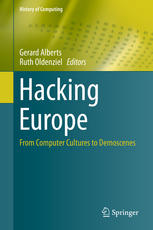

Most ebook files are in PDF format, so you can easily read them using various software such as Foxit Reader or directly on the Google Chrome browser.
Some ebook files are released by publishers in other formats such as .awz, .mobi, .epub, .fb2, etc. You may need to install specific software to read these formats on mobile/PC, such as Calibre.
Please read the tutorial at this link: https://ebookbell.com/faq
We offer FREE conversion to the popular formats you request; however, this may take some time. Therefore, right after payment, please email us, and we will try to provide the service as quickly as possible.
For some exceptional file formats or broken links (if any), please refrain from opening any disputes. Instead, email us first, and we will try to assist within a maximum of 6 hours.
EbookBell Team

4.4
42 reviewsHacking Europe traces the user practices of chopping games in Warsaw, hacking software in Athens, creating chaos in Hamburg, producing demos in Turku, and partying with computing in Zagreb and Amsterdam. Focusing on several European countries at the end of the Cold War, the book shows the digital development was not an exclusively American affair. Local hacker communities appropriated the computer and forged new cultures around it like the hackers in Yugoslavia, Poland and Finland, who showed off their tricks and creating distinct “demoscenes.” Together the essays reflect a diverse palette of cultural practices by which European users domesticated computer technologies. Each chapter explores the mediating actors instrumental in introducing and spreading the cultures of computing around Europe. More generally, the “ludological” element--the role of mischief, humor, and play--discussed here as crucial for analysis of hacker culture, opens new vistas for the study of the history of technology.